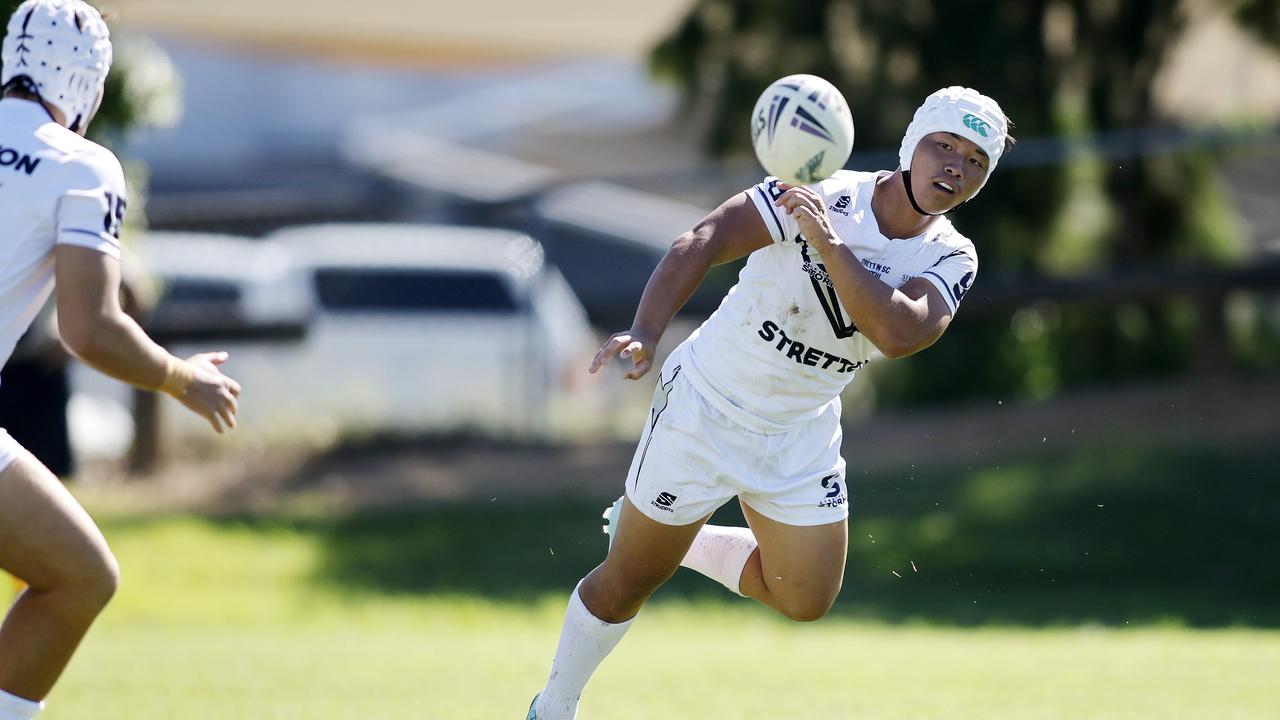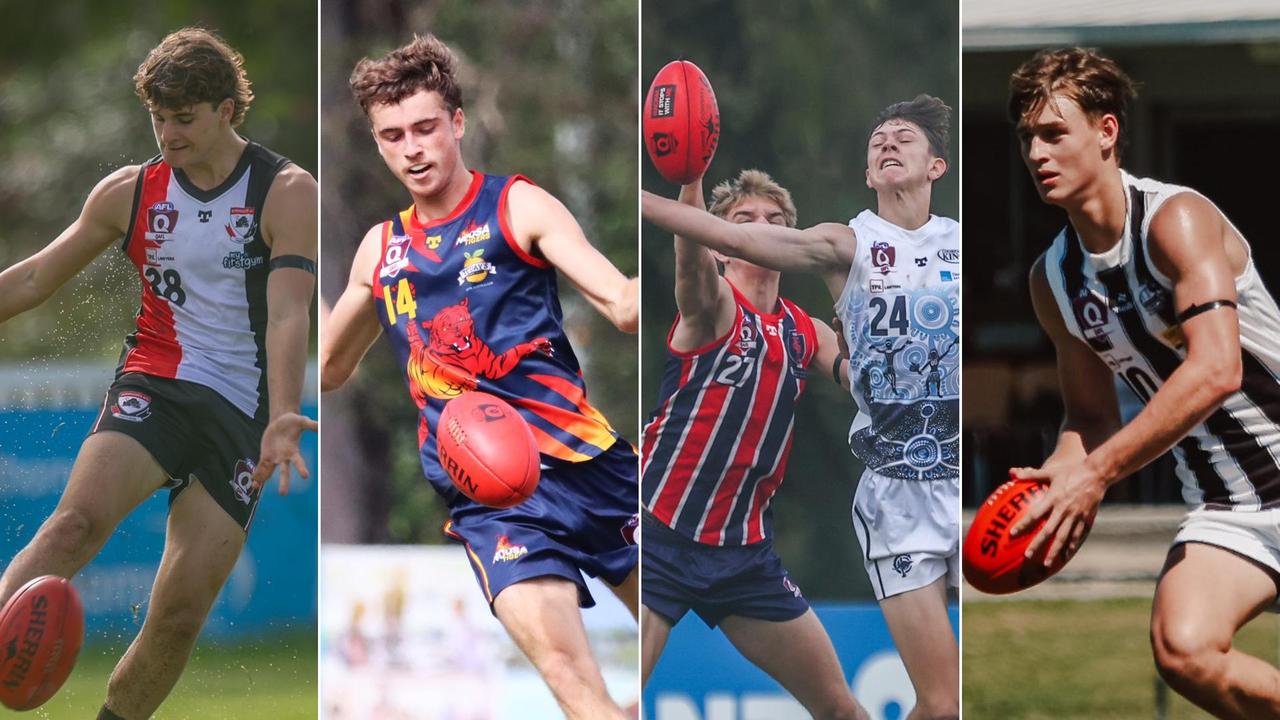Surf stars Harriet Brown and Lizzie Welborn tackling silent battle with food restriction by shocking number of athletes
It’s one of the biggest issues a shocking number of young female athletes battle with in silence. In a special edition of The Shore Thing two stars of the surf have opened up about their own struggles with food restriction, the impact it had and how they are changing the game for the next generation.
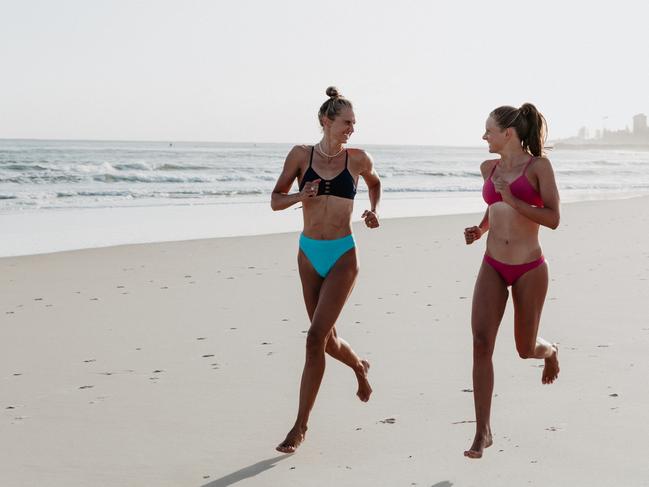
Sport
Don't miss out on the headlines from Sport. Followed categories will be added to My News.
Respect your body.
It’s the mantra surf ironwomen Lizzie Welborn and Harriet Brown live by now because they have experienced what it is like when you don’t.
But they are not the only ones, and it’s why the respected duo launched KaMana, a community aimed at empowering young female athletes through workshops that discuss the likes of body confidence, health, menstrual cycles, nutrition and performance habits and mindset.
“We want to prepare them for the obstacles that will come their way,” Newport athlete Welborn said.
“We don’t want to see them stop sport because we have seen way too many girls drop out of sport because of their body changing or nutrition or period issues.”
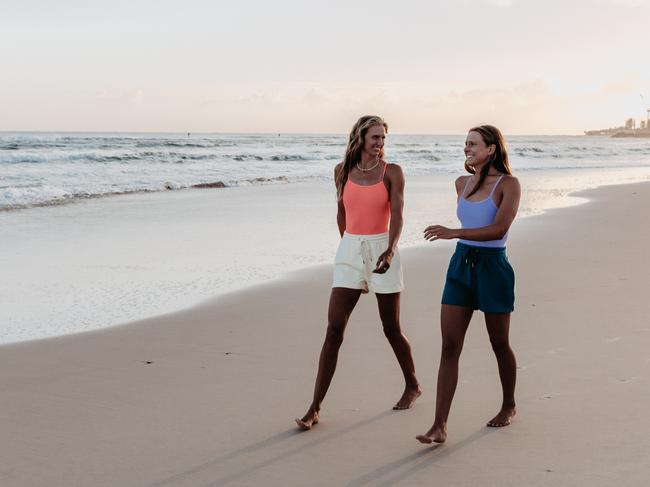
They have already worked with 35 different sports clubs, schools and organisations and delivered over 40 workshops in 2023.
The impact on young athletes has been profound and it’s because both have battled with the same issues as most of the females they speak to.
Their key message is reflected in KaMana, which means ‘the power’.
Their stories started with food restriction. For Welborn it came on the back of a struggle with body image while Brown’s decision came on the back of a skin-fold test that resulted in her being told she needed to drop weight from her legs to succeed.
“I was 19 when I first moved to the Gold Coast to study and train and at one point we had skin fold testing done,” Northcliffe athlete Brown, 33, said.
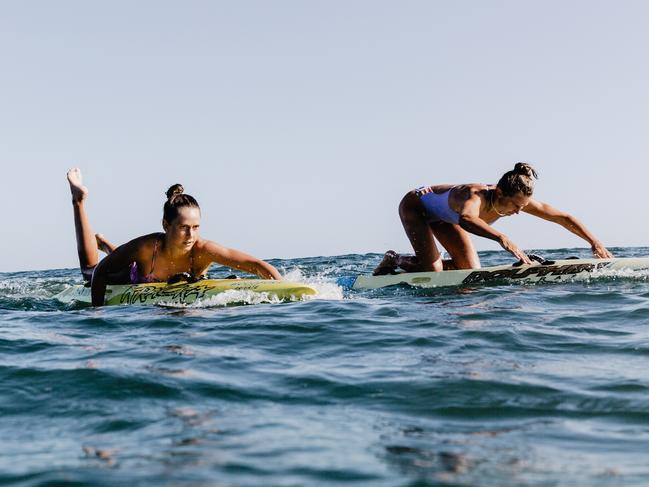
“I was trying to be an ironwoman, training with some of the best girls and I thought I needed to do all the things I can to be the best athlete I can be.
“When we did the testing I was told everywhere was fine apart from my legs and that I needed to lose weight from my legs without much guidance.
“Being a young athlete and also studying exercise science at the time I drew on what I knew which was to lose weight you eat less and train more.
“I tried to eat a little bit more of what I would have thought was healthy back then, salads and vegies and carbs and things like that. But it wasn’t enough fuel to train.
“I was struggling with energy and to get through the training week.
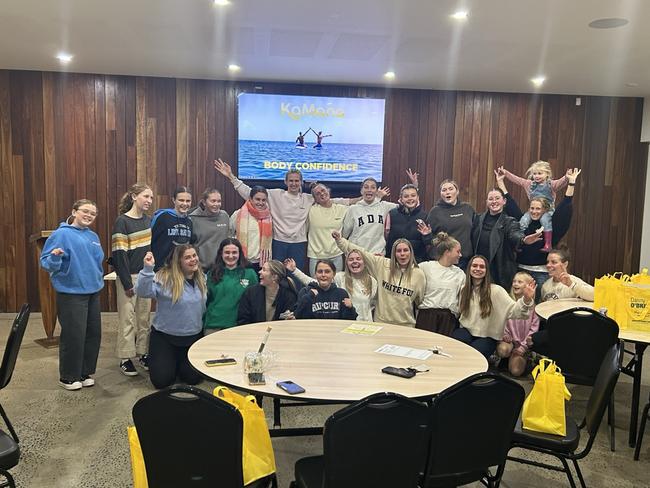
“I remember thinking how can I keep up with these girls, get to all these sessions, look the way I’m supposed to look and be the best athlete I can be?
“I was putting restrictions on myself and not eating foods like chocolate and cakes but then I would just crave that because I was trying to restrict myself from eating those kinds of foods.”
Brown said the restrictions spanned nearly two years before she saw a dietitian and incredibly she still managed to break into the Nutri-Grain Ironwoman Series in her first year on the Gold Coast.
“The dietitian told me I needed to double the amount I was eating which really shocked me,” Brown said.
“I remember thinking that is crazy. I then realised I had enough energy to get to training and get the most out of my sessions once I did. I trained better and raced better and felt better.
“I see so many girls and people just choose to reduce what they are eating to look a certain way.
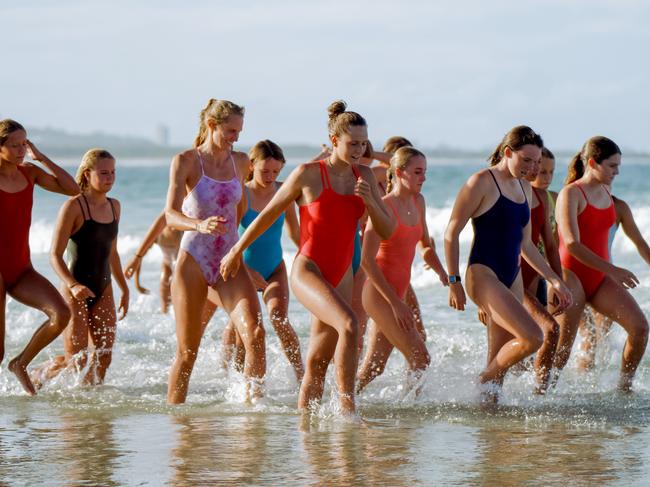
“It’s so common and a lot of dietitians have told me 95 per cent of athletes are not eating enough.”
For Welborn, 25, it was a negative perception of her own body that led to her relationship with food worsening.
“It’s my own experience with body image that provided the big inspiration for why I wanted to create KaMana,” Welborn said.
“It wasn’t super extreme or traumatic but it is just so common. I realised after going through it that most girls around me were having the same experience and none of us were talking about it.
“Growing up I did not care about my body at all. I didn’t think about it too much.
“I had people always compliment my body and say I looked a certain way but I didn’t really think too much about it.
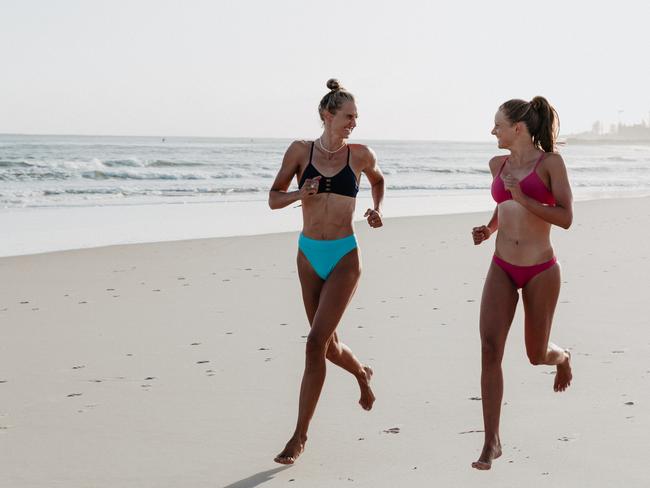
“It wasn’t until my body started to change that I did start to become aware of what my body looks like.
“I was about 20 or 21 when I felt like my body really started to change.
“I started gaining weight in places I have never gained before.
“All women gain fat as they go through puberty and get older, it is just what happens to our bodies.
“To the average person who knew me they wouldn’t have noticed anything different but for me it felt like my body was changing so much and I started to become really uncomfortable with what I looked like.
“I became insecure and started to have a lot of negative thoughts. I was worried people were going to look at me differently and think I wasn’t fit enough or think about me differently and I was scared I was going to be judged and not liked because my appearance was changing.
“Then when we went into lockdown in 2020 the world stopped but I had more time to think.
“I decided that if I wanted to be happy with my body and be the best athlete I could be then I needed to try and be the thinnest, most shredded athlete I could be.
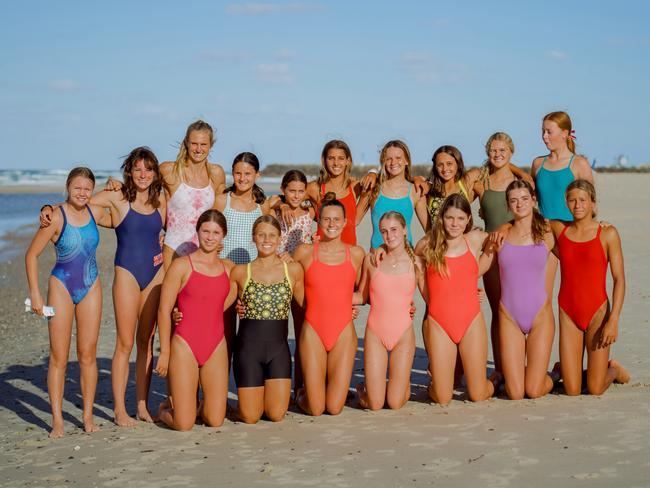
“I was thinking about athletes I look up to who looked that way and I thought I want to look like them and if I can then I will be happy with my body.
“From that moment I started really restricting what I was eating.
“At the time it didn’t make much of a difference because we were in lockdown and we weren’t training but once lockdown ended and I got back into normal training, and being an ironwoman we have a massive training load, these negative habits stuck with me.
“I lost a lot of strength, I wasn’t as healthy, I wasn’t training well and one of the biggest things was that it impacted me emotionally. I was more stressed and anxious.
“I thought about the food I ate each day and if I thought I ate too much one day I would restrict more the next day.
“It carried on for about a year and through that 20/21 season before I decided to do something about it.
“I realised if I wanted to achieve my goals I couldn’t do it if I was continually worrying about the way I looked. I needed to respect my body. I saw a dietitian and a sports psychologist and once I started eating correctly I felt better.
“I still have negative thoughts about my body and feel uncomfortable in certain situations but I know how to deal with it better and I don’t let it control what I eat.”


